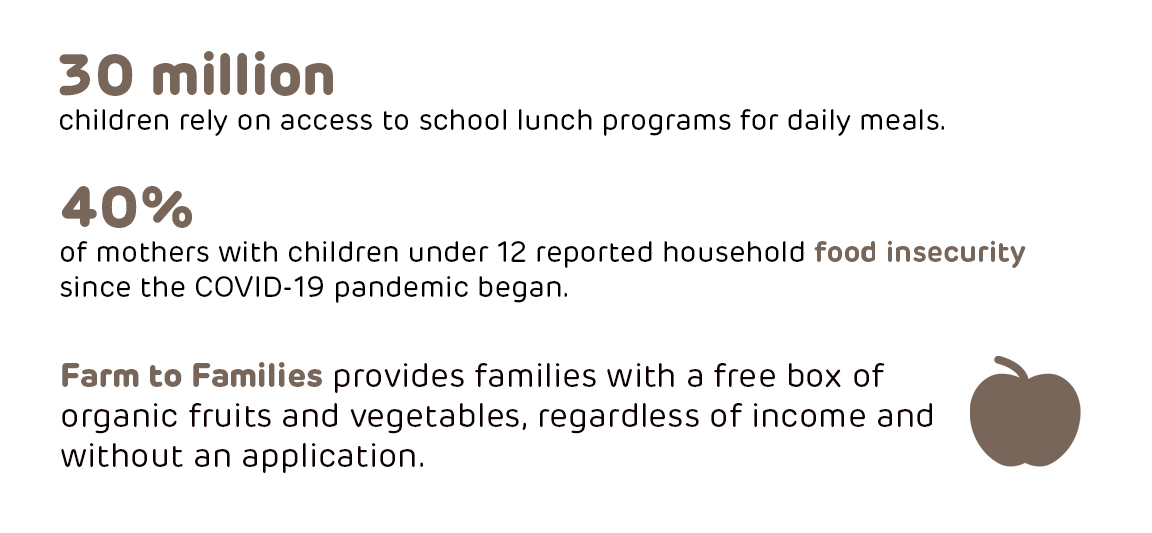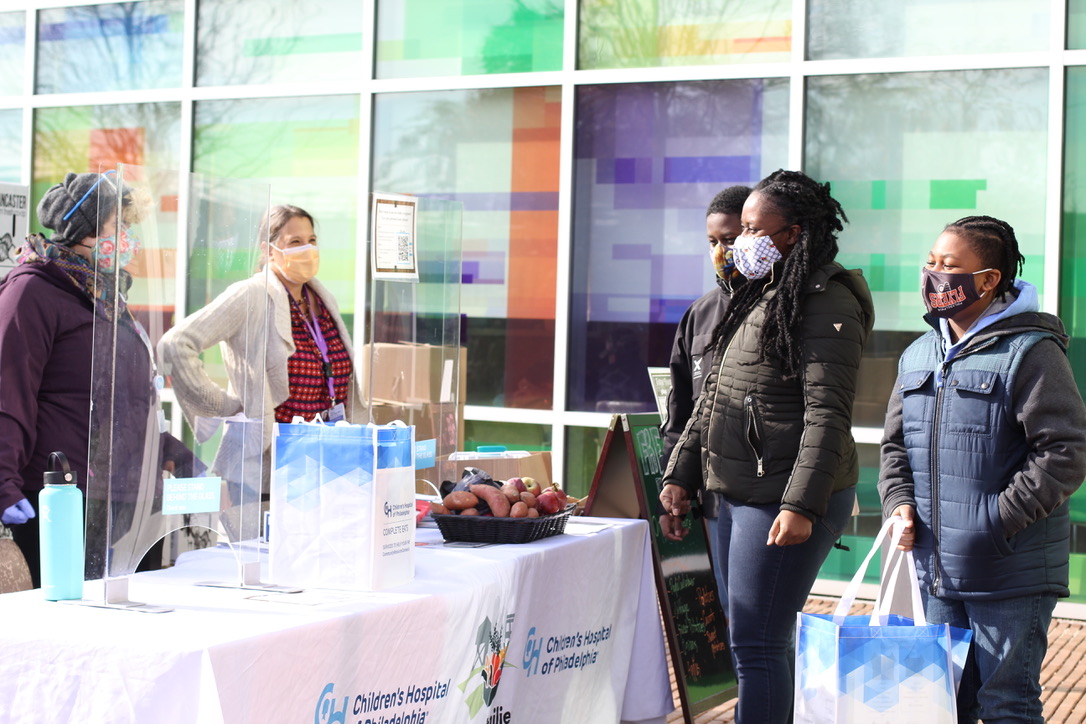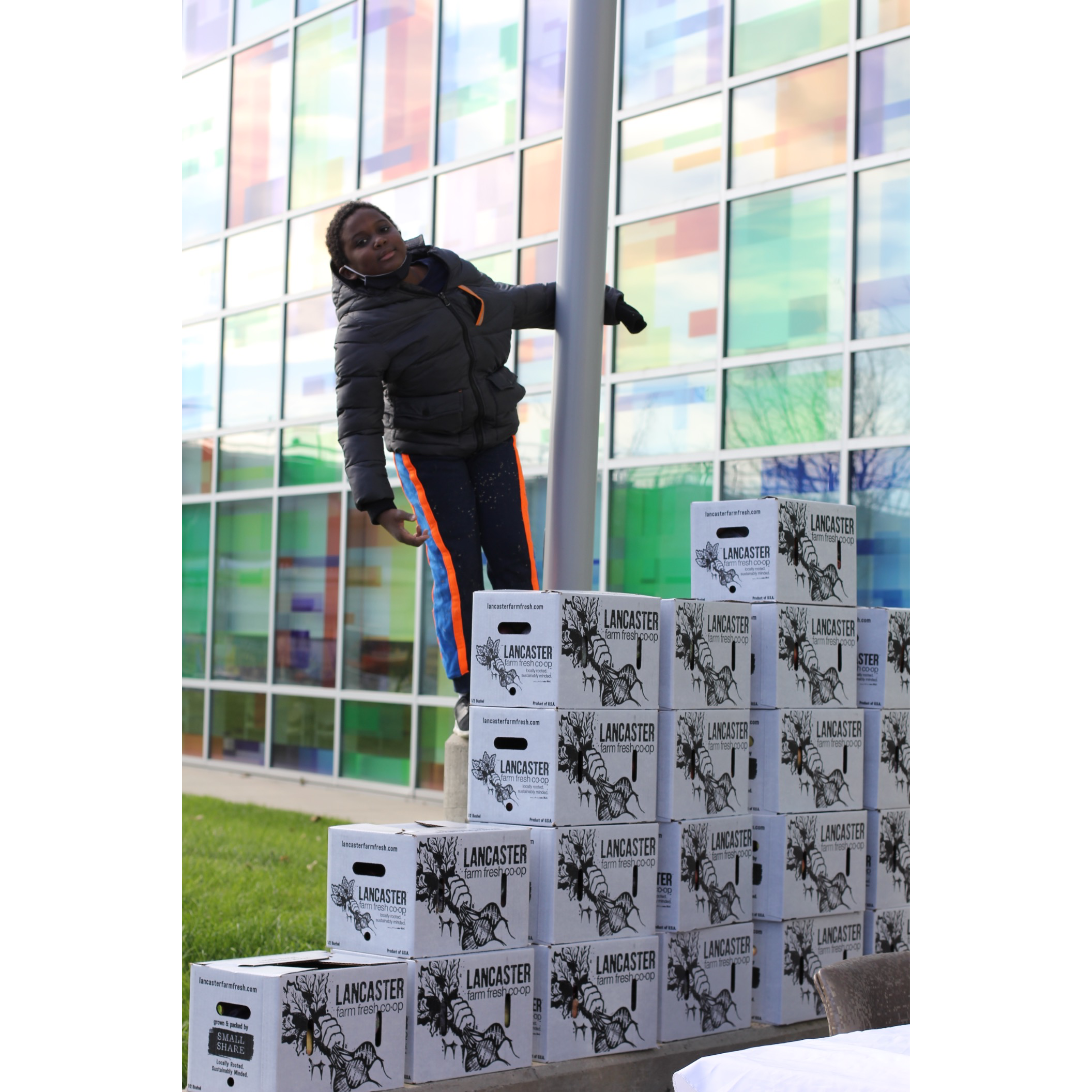Farm to Families: Understanding the Impact of Subsidized Produce Boxes for Families in the Clinical Setting
Statement of Problem
The COVID-19 pandemic has only deepened challenges for the nearly 1 in 4 children who were already food insecure in Philadelphia, and has created new barriers to food access for families who never previously struggled. From rising unemployment rates that disproportionately affect low-income families, to school closures that curtail access to lunch programs for the 30 million children they served each day, COVID-19 has impacted nearly every aspect of the systems that food insecure families depend on. As a result, food insecurity rates have reached staggering new heights and continue to rise: as of May 2020, more than 40% of mothers with children under age 12 reported household food insecurity since the pandemic began, compared to 15% in 2018.
Access to produce has proven to be particularly difficult for food insecure families, a population that has historically reported rates of fruit and vegetable consumption below the national average. Rising costs, low stock and strained budgets due to COVID-19 have pushed produce even farther down on the shopping list. Furthermore, due to factors including risk of contracting the virus and reduced availability of child care, families are prioritizing foods with a longer shelf life than fruits and vegetables to stretch groceries as far as possible.
Description
Farm to Families: Understanding the Impact of Subsidized Produce Boxes for Families in the Clinical Setting
Farm to Families: Understanding the Impact of Subsidized Produce Boxes for Families in the Clinical Setting


We’re conducting a qualitative evaluation of a clinically-based produce program to advance our understanding of COVID-19’s impact on food insecurity and inform preferences for future programming.
To assess families’ food access needs and translate findings into programs that meet them, our team has focused in on one of the few places families are still going: the doctor’s office. In July 2020, we partnered with the St. Christopher’s Foundation for Children, Lancaster Farm Fresh Cooperative and the Garden at Karabots to launch Farm to Families, a cost-subsidized community-supported agriculture program (CSA). In addition to alleviating some of the immediate burden of food insecurity, the goals of Farm to Families include understanding the unprecedented food access challenges that families are facing in real-time, and evaluating whether clinical care sites are feasible and acceptable locations for a cost-subsidized CSA.


We conducted a 12-week pilot in the summer of 2020, distributing free boxes of produce at Children’s Hospital of Philadelphia’s (CHOP) Karabots Pediatric Care Center and the Buerger Center for Advanced Pediatric Care. Before receiving a produce box, participants completed a brief demographic and food insecurity survey and could opt-in to a follow-up phone interview. During the interview, participants were asked to share their experience with Farm to Families as well as provide feedback on how a CSA program based in a health care setting could better meet their needs. The interview also assessed how the pandemic affected caregivers’ ability to obtain enough food for their families, changes to benefits and how families engage with community resources during this time.
During this pilot, the team distributed boxes to reach more than 6,400 individuals. Without preceding eligibility criteria, the program reached families with nearly a 50% rate of reported food insecurity, highlighting that screening is not imperative to reach food insecure families. Interviews revealed that while many caregivers were initially “surprised” by the program setting within the clinic, they ultimately felt that it reinforced the hospital’s commitment to “whole health” and perceived it to be safer than other food program settings during the pandemic. Several programmatic features emerged as particularly important: ease and efficiency of use, kindness of staff, and confidentiality.
Participants reported that engagement with the Farm to Families program helped mitigate barriers to food access by reducing the frequency of shopping trips, and enabled the reallocation of finances to needs other than food. Further, the program cultivated caregivers’ and children’s’ favorable attitudes toward fresh produce, increased interest in purchasing produce, and developed confidence in preparing produce for family through exploration of recipes and exposure to new ingredients.
Source: Pediatrics
Next Steps
Informed by participant interviews, we have transitioned the program to a sliding-scale fee-for-service model that is available to any community member or clinical staff. Participants are able to shop online for produce, and add on items like eggs, meat, cheese and yogurt. Pricing structures are determined by income, food security status and participation in federal benefit programs, with all products priced far below market value. Additionally, there is a pay-it-forward feature allowing the highest earners to help subsidize boxes for those who qualify for assistance. Families can also purchase boxes using Supplemental Nutrition Assistance Program (SNAP) Electronic Benefits Transfer (EBT).
Upcoming studies are planned to pilot a delivery option, and to optimize the pricing structure to meet the needs of families. Our hope is that our findings will advance understanding of COVID-19’s impact on food insecurity among vulnerable populations and inform the long-term sustainability and impact of a cost-subsidized CSA at CHOP to provide healthy food for families.
This project page was last updated in October 2022.
Suggested Citation
Children's Hospital of Philadelphia, PolicyLab. Farm to Families: Understanding the Impact of Subsidized Produce Boxes for Families in the Clinical Setting [Online]. Available at: http://www.policylab.chop.edu. [Accessed: plug in date accessed here].
